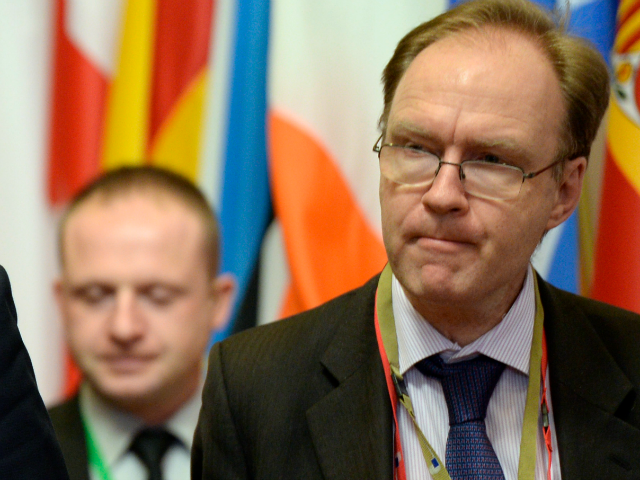LONDON (AFP) – Britain’s future trade arrangements with the EU will not be concluded until the early mid-2020s at best, its former ambassador to the bloc said Wednesday, warning of “feisty” negotiations ahead.
London will conclude free trade agreements (FTAs) with other countries much quicker than with the European Union, which is serious about demanding an exit fee from Britain, Ivan Rogers said.
The former diplomat, who quit last month as Britain’s ambassador to the EU, said the divorce process was likely to get “feisty”.
“It’s a negotiation on a scale that we haven’t experienced probably ever but certainly since World War II. This is going to be on a humongous scale,” Rogers told parliament’s European Scrutiny Committee.
He said proceedings were still in the “phoney war period” and would undoubtedly descend into an “extremely feisty atmosphere” and a “mercantilist fist-fight”, before reaching a conclusion.
British Prime Minister Theresa May intends to trigger Article 50, which starts a two-year clock ticking to departure, by the end of March.
Even after talks conclude, senior European figures believe it “would probably take until the early mid-2020s” before any deal is ratified across all the European national and regional parliaments, he said.
Rogers said that post-departure, he was in “no doubt” that Britain would negotiate free trade agreements with other countries faster than it would with Brussels.
While several EU figures think the Brexit separation deal must be concluded before talks on future trade arrangements, Rogers said he thought it “inevitable” that the two would have to take place concurrently.
The EU has estimated Britain’s departure bill at 55 billion to 60 billion euros, EU sources told AFP.
From the EU’s point of view, UK withdrawal will “explode a bomb” under its seven-year budget, costing poorer countries up to 12 percent of the structural funding they receive from Brussels, Rogers said.
Richer states like Germany and France would be under pressure to make up the shortfall.
Rogers said he quit his post nine months early because he thought the same team in place at the start of the Article 50 process should see it through to the end.
“If we get it right, the country gets to the other side of it prosperous and healthy and maybe even happier on sovereignty,” he said of Brexit.
“If we get it wrong, there could be very severe complications.”
A senior European diplomat also on Wednesday compared May to someone ditching their subscription but still wanting to maintain all the services, warning that getting Britain out of the EU would be as easy as “getting an egg out of an omelette”.

COMMENTS
Please let us know if you're having issues with commenting.